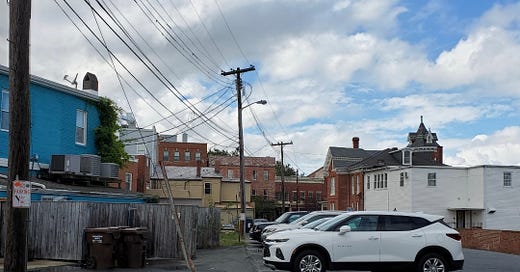Last week for the subscribers-only weekend post, I recounted an interesting series from 2016 over at Strong Towns, with some unconventional and contentious thoughts on why certain expensive cities (in this case, Portland) are so expensive.
The conclusion that Charles Marohn, president of Strong Towns, came to is that the zoning around Portland’s transit-oriented development sites was too permissive—allowing far more development than could actually be built—and this had, and has, the effect of inflating land values, artificially rendering gradual and modest improvements not cost effective.
His theory is essentially that the “density corridor” approach to new housing—where the vast majority of land remains zoned for single-family while a little bit of land along transit lines is upzoned dramatically—produces market distortions and stifles broad-based, incremental, organic growth across a whole city.
He also suggests that few places are really inevitably growing and growing. “We’re growing” can be an excuse for big, expensive plans, a sort of carte blanche to bypass the incrementalism Marohn considers essential to build strong and stable places.



